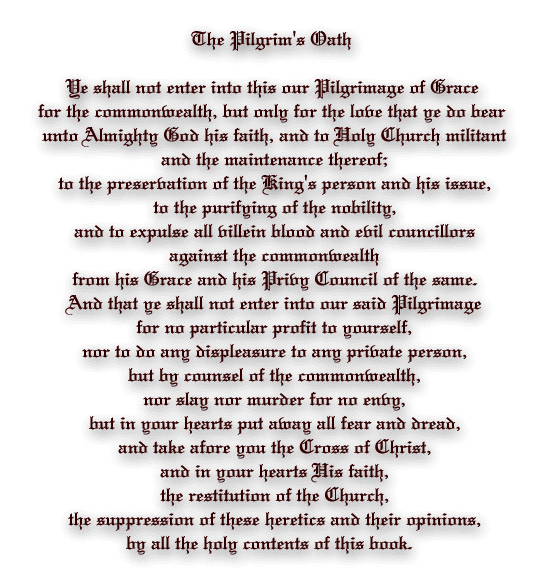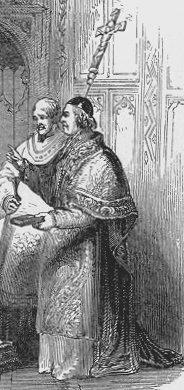Sir THOMAS PERCY, 1536
"For whom do you stay? I will not obey the commandment of the King, but the commandment of God which was given by Moses." —2 MACH. vii. 30.
See
PILGRIMAGE OF GRACE (1)
CLEANSING THE TEMPLE
THE ABOMINATION OF DESOLATION

ENGLISH-SCOTTISH- WELSH- IRISH MARTYRS Between 1535 and 1681, over 600 Catholics died for the Catholic Faith and for the primacy of the Roman Pontiff, 54 were beatified in 1888 and nine more in 1895; 247 others had their cause of beatification introduced in 1886, being declared Venerable; the remainder (about 286), though they all died heroically, led more obscure lives. 40 were canonised in 1970.

Posted by
Catholic Conclave
at
8:18 AM
0
comments
![]()
Labels: 1536, Sir Thomas Percy

Posted by
Catholic Conclave
at
8:02 AM
0
comments
![]()
Labels: Pilgrimage of Grace, Sir Robert Aske
Posted by
Catholic Conclave
at
12:00 AM
0
comments
![]()
Labels: 1593, priest, Venerable, William Waterson
Posted by
Catholic Conclave
at
9:59 AM
0
comments
![]()
Labels: 1660, Franciscan, John Genings
Posted by
Catholic Conclave
at
4:43 AM
0
comments
![]()
Labels: Abbot, John de Feckenham, Westminster
Posted by
Catholic Conclave
at
12:00 AM
0
comments
![]()
Labels: 1572, Blessed, Cambridge, Oxford, priest, Thomas Plumtree, Valladolid

Posted by
Catholic Conclave
at
7:31 AM
0
comments
![]()
Labels: 1585, Abbot Feckenham, Benedictine
Posted by
Catholic Conclave
at
8:13 AM
0
comments
![]()
Labels: 1600, Layman, William Blundell
Posted by
Catholic Conclave
at
6:33 AM
0
comments
![]()
Labels: 1600, Layman, William Blundell
In the persons, places and dates section, the posts are categorised according to name, religious order, date of martydom, place of birth, place of death and other key associations such as the Northern Rising.
Keep scrolling down!
Previously posted material is also being updated. There are a few problems with the titles of earlier posts, which will be corrected soon.
Contact me catholicconclave@gmail.com with comments, information and even corrections if necessary.